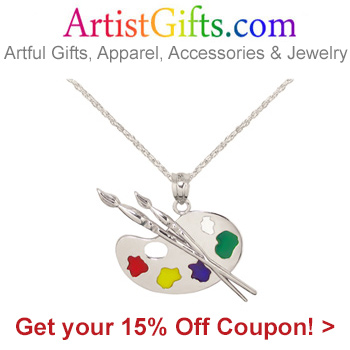Are you serious about your creative business? Put your best foot forward and get taken seriously by those important prospective customers.

One of the biggest mistakes that artists make is jumping into the marketing arena before they are truly ready. The result may be an amateurish presentation and a marketing message that is unfocused.
There’s a lot of competition in the marketplace. It’s a crowded place where you must work hard to be noticed. Quite a few of your competitors are struggling to be seen and heard, and are unsure how to best market and sell what they make. Consequently, they aren’t getting the traction with sales that is necessary to grow a business.
Others have more success. This is chiefly because they have an interesting concept, a professional presentation, and a clear message. Customers want to own beautiful pieces of art and handmade work created by experts who know what they are doing. This is the impression you must give. When you commit to a high level of professionalism in your small business, you have a distinct advantage.
Trust is the basic ingredient in any business relationship. You can start building trust with customers by presenting everything about your art and your business as professionally as possible. Review our checklist to see what is in already in place in your own small business, and what steps you need to take to improve your presentation.
Creating and presenting a professional portfolio is a crucial step for visual artists looking to establish themselves in the competitive art market. A well-thought-out presentation not only showcases your artistic abilities, but also enhances your brand image. Here are some key elements to set you on the path to successful presentation:
1. A Cohesive Collection Ready to Sell
Signature Style: Ensure that your collection embodies a distinctive and recognizable style. Consistency in your artistic expression will not only strengthen your brand, but also make your work more appealing to potential buyers.
Logical Progression: Evaluate if the products in your collection lead organically from one to the next. A seamless flow enhances the overall narrative of your portfolio, making it more enticing for customers to explore and invest in multiple pieces.
2. Excellent Images
Professional Photography: Invest in high-quality, professional photography to showcase your work. Consider hiring a skilled photographer who can capture the nuances of your art effectively. Clear, well-lit images are essential for leaving a lasting impression on potential buyers and galleries.
Image Enhancement: Ensure that your images not only accurately represent your artwork but also enhance its visual appeal. Professional editing can elevate your portfolio by highlighting details, colors, and textures, making your art more captivating.
3. A Clear Understanding of Your Audience
Target Customer Profiling: Develop a deep understanding of your target audience. Consider factors such as age, preferences, and buying behavior. Tailor your marketing efforts to resonate with their interests and needs, increasing the likelihood of connecting with potential buyers.
Market Research: Stay informed about current trends and preferences within your niche. This knowledge will empower you to adapt your artistic approach and marketing strategy to align with the evolving tastes of your audience.
4. A Compelling Message
Conceptual Clarity: Clearly articulate the concept behind your collection. What sets your work apart from others? Why should someone invest in your art? Craft a compelling narrative that communicates the unique qualities, inspirations, and emotions embedded in your creations.
Value Proposition: Address the “why” behind purchasing your art. Highlight the emotional and aesthetic value your pieces bring to the buyer’s life. This is the story that will resonate with your audience and drive them to make a purchase.
5. A Recognizable Brand
Visual Consistency: Establish a consistent visual identity for your brand. Define a palette of colors, specific fonts, and logos that align with the essence of your art. Consistency across your website, promotional materials, and packaging reinforces brand recognition.
Brand Differentiation: Identify what makes your brand unique within the marketplace. Clearly communicate these differentiators in your messaging. Whether it’s a distinctive artistic approach, a commitment to sustainability, or a personal narrative, make sure your audience understands what sets you apart.
By meticulously addressing each element in this checklist, visual artists can elevate their portfolio presentations to professional heights. Remember, a well-curated collection, striking visuals, targeted marketing, a compelling message, and a distinctive brand identity are the building blocks of a successful artistic career. Strive for excellence in each facet to captivate your audience and leave a lasting impression.


Speak Your Mind